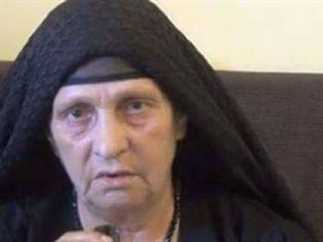I had not heard of Mina Daniel until he was killed on 9 October in the Maspero violence, which shocked me just like it shocked all Egyptians.
I pondered this name in a symbolic way, not rational or logical, for sometimes what makes us relate to pain or happiness are inner feelings and not necessarily facts and figures.
With a deep sorrow, the source of which I did not immediately recognize, I wondered: Why should a young man by such a name die on that particular day?
We all know that Mina was the name of the pharaoh who united Upper and Lower Egypt, without whom there would not have existed the Egypt that we know, with its borders that he had marked over 5000 years ago.
Willpower, struggle and endurance produce unity and preserve it. And Mina, the pharaoh, was the first Egyptian in whom those values were manifested; the values that built Egypt and enabled it to prevail.
And so, symbolically speaking, what does it mean that a young man by that same name gets killed? And what about his last name, Daniel?
Three days before he was killed, I was coincidentally telling friends of mine over dinner how I liked the name Daniel.
“But it’s a Jewish name,” said one of them.
I told them Prophet Daniel is not mentioned in the Quran, but Muslims, Christians and Jews believe in him.
In Hebrew, which is a language close to Arabic, Daniel means "God judged" or "The Lord is my judge." In other words, it is God who judges, not man.
So what symbol does the killing of Mina Daniel represent?
I fear for the unity that God judged to be a characteristic of Egypt. He is testing us with it, just as he tested our forefathers, who succeeded in preserving it for thousands of years.
This article is not a political analysis of events. It is an attempt to meditate a particular name that may reveal to us who we really are. I hope the name Mina Daniel reminds us of the original nature that God judged for us.
Translated from the Arabic Edition




